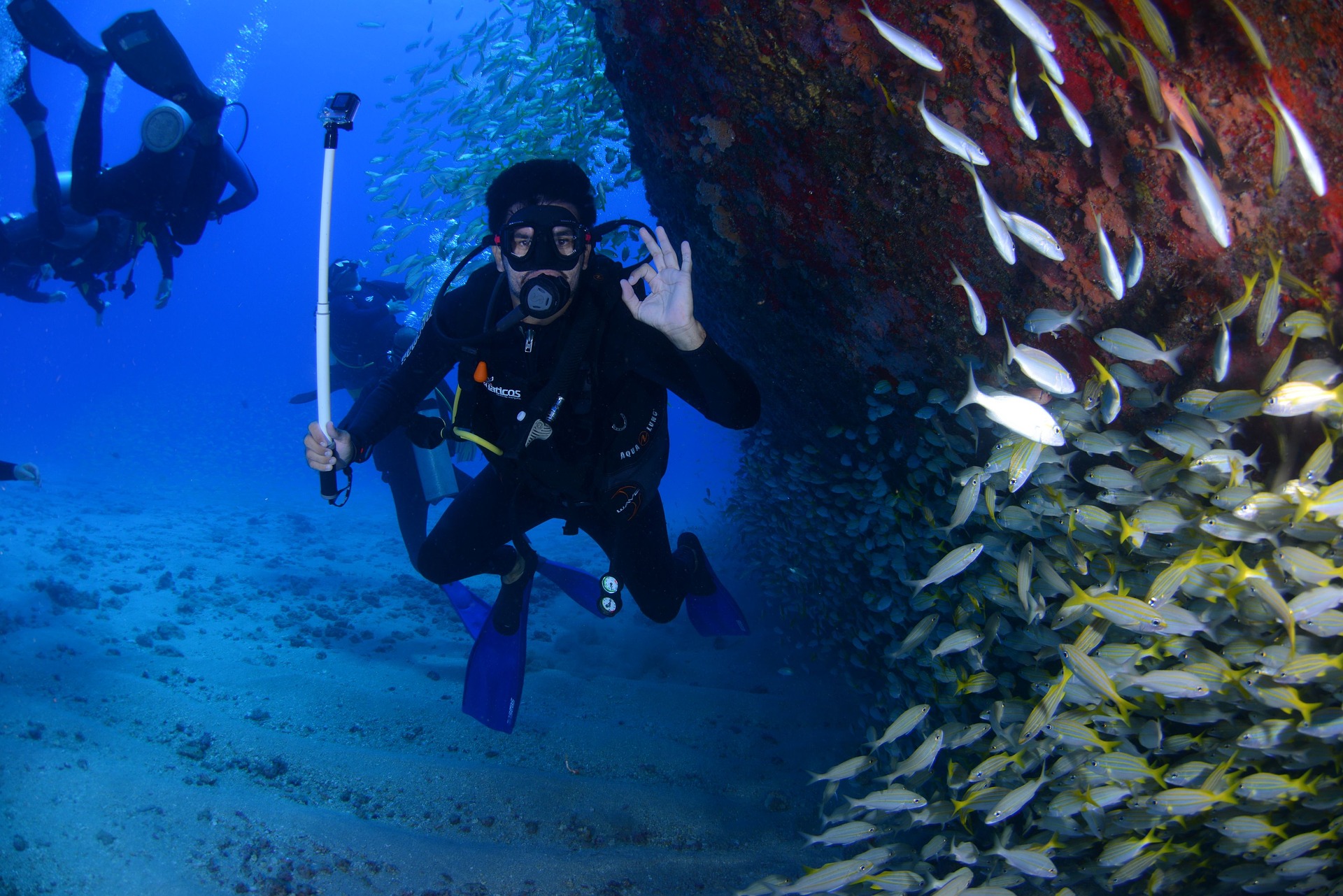Planning is Key
You’ve likely heard it before and now you’re going to hear it again: Plan the dive, and dive the plan. The importance of planning your dive cannot be understated, as it is vital to your safety. Not only difficult or especially deep ventures require a plan of action before you dive in, so practice thoughtful planning before every single dive you do.
Check and Double-Check the Safety of your Equipment
Don’t wait until the day of your dive to check your equipment. Make sure that everything has been serviced and maintained properly ahead of time, so that you can detect any malfunctions or other problems with your gear. Check the batteries for your dive computer and your underwater torch. Do all of this again just before you are getting ready to dive. If your outing includes a buddy, ask them to check your equipment as well, and do the same for them.
Carefully Test Any New Equipment
Of course you’re going to be excited to test out a piece of equipment that you’ve just gotten. But don’t let your excitement get ahead of you, and remember to test your new gear under controlled conditions. A simple and popular option is to test it in a swimming pool. If for some reason you do not have access to a pool to do this in, it’s best to use the new equipment only on a shallow and easy dive first. Struggling with new equipment is especially dangerous in deeper waters.
Make Sure that You are Ready to Dive
Your equipment is not the only thing that needs to be ready for the dive. Your body needs to be well in order to accomplish your next outing safely. If you are sick or otherwise unprepared to dive, don’t take any chances and save the dive for another day. It’s a lot better to miss a dive because you’re not feeling well enough for it, than it is to take unnecessary risks.
Check the Condition of the Weather
It is essential to keep in mind the conditions of the weather before you go on your dive. Surface conditions can impact your dive, as can conditions beneath the surface of the water. Make sure to check the water temperature so that you know what kind of wetsuit to wear. Being too hot or too cold can compromise your safety and be very uncomfortable. Also check for things like visibility, currents or any other problematic weather conditions that could make the dive an unsafe experience. If any of the current weather conditions seem unfavorable to diving, it’s best to reschedule.
Be Aware of your Limitations
Absolutely never should any diver push themselves beyond their personal limits. If you are only qualified to dive down to a certain depth, then do not let your dive plan exceed that number. Specialized diving ventures require additional certification to ensure that you can handle conditions at farther depths beneath the surface. Do not attempt more complicated dives, like cave diving, until you have received the proper training and relevant certification. A lot can go wrong if you don’t know what to do once you’re down there, so push aside any ego or bravado in favor of safety and sense.
Show up to Dive Focused, Alert and Ready
Divers are warned not to drink alcohol for twenty-four hours prior to a dive, and they are told this for very good reason. Being alert is essential in any dive, and the effects of a hangover can make attempting a dive dangerous. If you are extremely tired, on medications which affect your focus or feel for any reason that you just cannot focus on the task at hand, then it’s best to put off the dive for another time. You need to be able to pay full attention to what is happening around you in order to dive safely.
Keep an Eye on your Gauges
This might seem like common sense, but there are a lot of accidents that occur because divers don’t make sure to regularly check their gauges. Be mindful to check them often. If you are diving with somebody else, let them know when you reach half your tank, and then again when you reach your reserve. You and your buddy should check each other’s gauges and let each other know how much air the other has left in their tank.
Understand the Signals
It’s easy to get very excited over learning the underwater signals for different species, but the most important of the diving hand signals are the ones relevant to safety. Make sure that you and everyone else involved in the dive understand these signals and know how to communicate them back and forth so that they can be used effectively in case of any potential problem. You need to be able to communicate effectively underwater, and hand signals are the easiest and most well-known method of doing this.
Take Personal Responsibility
Don’t take your diving buddy for granted. You need to take responsibility for your personal safety on every single dive. You need to make sure to follow everything that you have learned about diving safely to the letter. This way you can help to avoid endangering yourself and any other divers accompanying you.
Contact with our experts at Sharky’s Scuba Supply and get scuba diving lessons and diving gears for safe and thrilling scuba diving experience.

